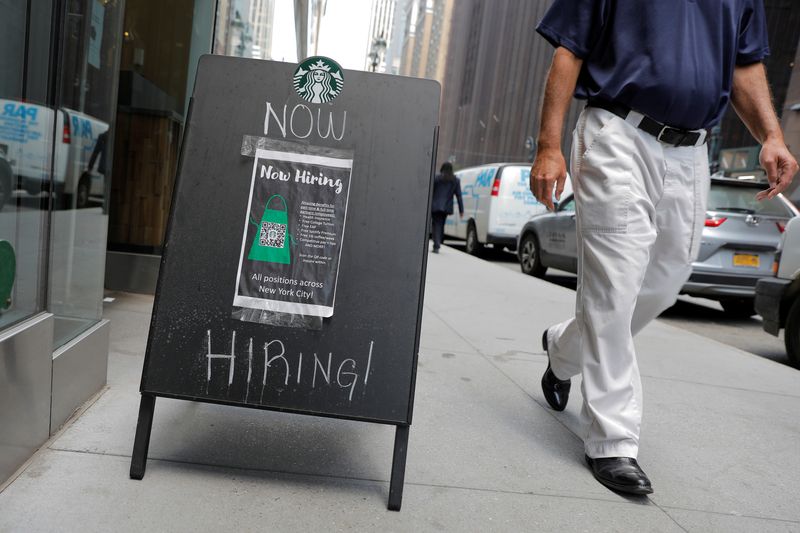Amazon Pharmacy brings $5 medication subscription service to Texas
Investing.com - The U.S. economy added fewer jobs than anticipated in February, but picked up compared to the previous month, according to labor market data that could factor in to how Federal Reserve officials determine the path ahead for interest rates.
Nonfarm payrolls for the month came in at 151,000, up from a downwardly-revised reading of 125,000 in January, data from the Labor Department’s Bureau of Labor Statistics showed on Friday. Economists had anticipated 159,000.
Meanwhile, the unemployment rate was 4.1%, faster than expectations that it would match January’s pace of 4.0%.
Average hourly wage growth also rose by 0.3% on a month-on-month basis, cooling from 0.4% and in line with projections.
In a note to clients, analysts at Vital Knowledge called the payrolls figure a "tiny boost to growth sentiment," adding that wages and unemployment "moved in a dovish direction."
Investors will likely be keeping an eye on remarks due later in the day from Fed Chair Jerome Powell. Citing a relatively resilient jobs picture and uncertainty around the inflationary impact of U.S. President Donald Trump’s trade and immigration policies, the Fed pushed pause on a rate cutting cycle in January and indicated that it will take a wait-and-see approach to future possible borrowing cost reductions.
The jobs report, which encompasses Trump’s first full month back in office since returning to the White House in late January, comes as economists and company executives have expressed concerns over the impact of the president’s tariff plans on inflation and economic growth.
Trump decision to slap levies on friends and adversaries alike has particularly roiled stock markets in the opening weeks of his administration, wiping out all of the gains in equities posted in the aftermath of his election win last November.
Uncertainty has swirled around his trade stance, which has included on-again, off-again duties on key U.S. trading partners Canada and Mexico. On Thursday, Trump temporarily suspended imports on the two countries that had taken effect just days earlier.
Against this backdrop, recent data points have suggested an easing in consumer confidence, retail sales and overall business activity, although analysts said the payrolls numbers have provided some "relief" from these fears.
The "modest" rise in nonfarm payrolls and the unemployment rate "confirms the economy started the year soft but is not plummeting towards a recession," said Thomas Ryan, North American Economist at Capital Economics.
However, Ryan argued that some of these concerns may resurface next month, when a raft of federal government layoffs during the opening months of Trump’s second term "will be a much larger drag on employment than they were last month."
Spearheaded by Tesla (NASDAQ:TSLA) CEO Elon Musk, the newly-created Department of Government Efficiency -- or DOGE -- has been pushing to ratchet down the size of the federal government, often through widespread dismissals and worker buyouts.
Musk and Trump have argued that the effort, which has faced some sharp backlash and legal challenges from Democratic-led states and liberal-leaning legal groups, is designed to root out wasteful spending and overhaul the structure of the government. About 100,000 workers have either accepted buyouts or been fired, according to Reuters. There are more than 2 million federal employees in total.
